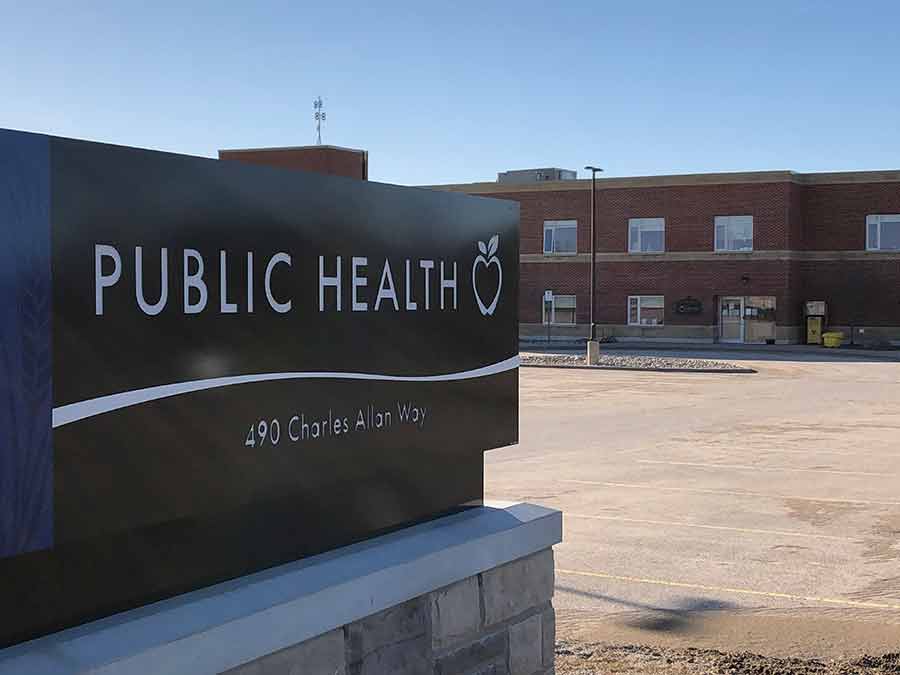WELLINGTON COUNTY – We may have reached the peak. But it’s not time to let your guard down.
According to the numbers on the Wellington-Dufferin-Guelph Public Health (WDGPH) website, as of April 22, there are 201 confirmed COVID-19 cases in the catchment area: 31 in Wellington County, 77 in Dufferin County and 89 in Guelph.
The local figures mirror provincial numbers released on Monday, suggesting the virus outbreak may have peaked.
“It suggests everything we are doing is working,” Dr. Nicola Mercer, medical officer of health, said in an April 20 phone interview.
“We need a couple of weeks of flatlining to be confident. We’re seeing that in B.C. But we can’t say that right away here.
“We will only know if we’ve reached the peak when we look backwards.”
The region will, in fact, likely see more cases as a new assessment centre opened in Mount Forest on April 21 and public health recently expanded the criteria for testing.
Mercer said there are more test kits available now and identifying positive cases earlier gets people in self-isolation earlier, which stems the spread of the virus.
More assessment centres also “prepares us as we move forward and lift restrictions,” she said. “The ability to be tested will be around for a long time.”
As of April 22, 13 COVID-19 related deaths have been reported in the region: two in Wellington County, five in Guelph and six in Dufferin County. And 34 cases are attributed to institutional outbreaks.
“We see (COVID-19) in congregate settings,” Mercer said.
“And we see it in family units and occasionally in workplaces. And I’m convinced we would have seen it in schools if they hadn’t been closed. So, it’s not a surprise we’re seeing it in long-term care.”
The impact on long-term care is devastating though, as elderly people have a harder time fighting the virus. Most of the local deaths have been people over 70.
Mercer said doctors are taking antibodies from patients who have recovered and giving sick patients a dose, to help them fight the illness.
“It’s called immunoglobulin therapy and it has been tried. But it’s a short-term solution and reserved for the most ill,” she said.
“The only real solution is a vaccine.”
And until a vaccine is developed, get used to living with some restrictions, she said.
“We have to maintain these good habits – of frequent hand washing, covering coughs, maintaining distance, staying home when sick, perhaps working remotely. It’s making a difference and we have to continue the practice.”
Mercer also said there was a second wave with SARS, H1N1 and influenza, and it’s not unreasonable to expect that with COVID-19.
“As we come out of an isolated state, it’s possible it will spread again,” she said. “Until we have a vaccine, it’s always a possibility.”
Some people have been asking for more details about confirmed cases and where those people are located.
Mercer said public health will disclose only the county/city, age and gender of confirmed cases for privacy reasons.
“In a large urban area, it’s less identifiable. But here, if we identify a certain area, it’s not that difficult to figure out who it is,” she said.
“People can identify themselves on Facebook if they want, but I don’t have the right to do that.”




